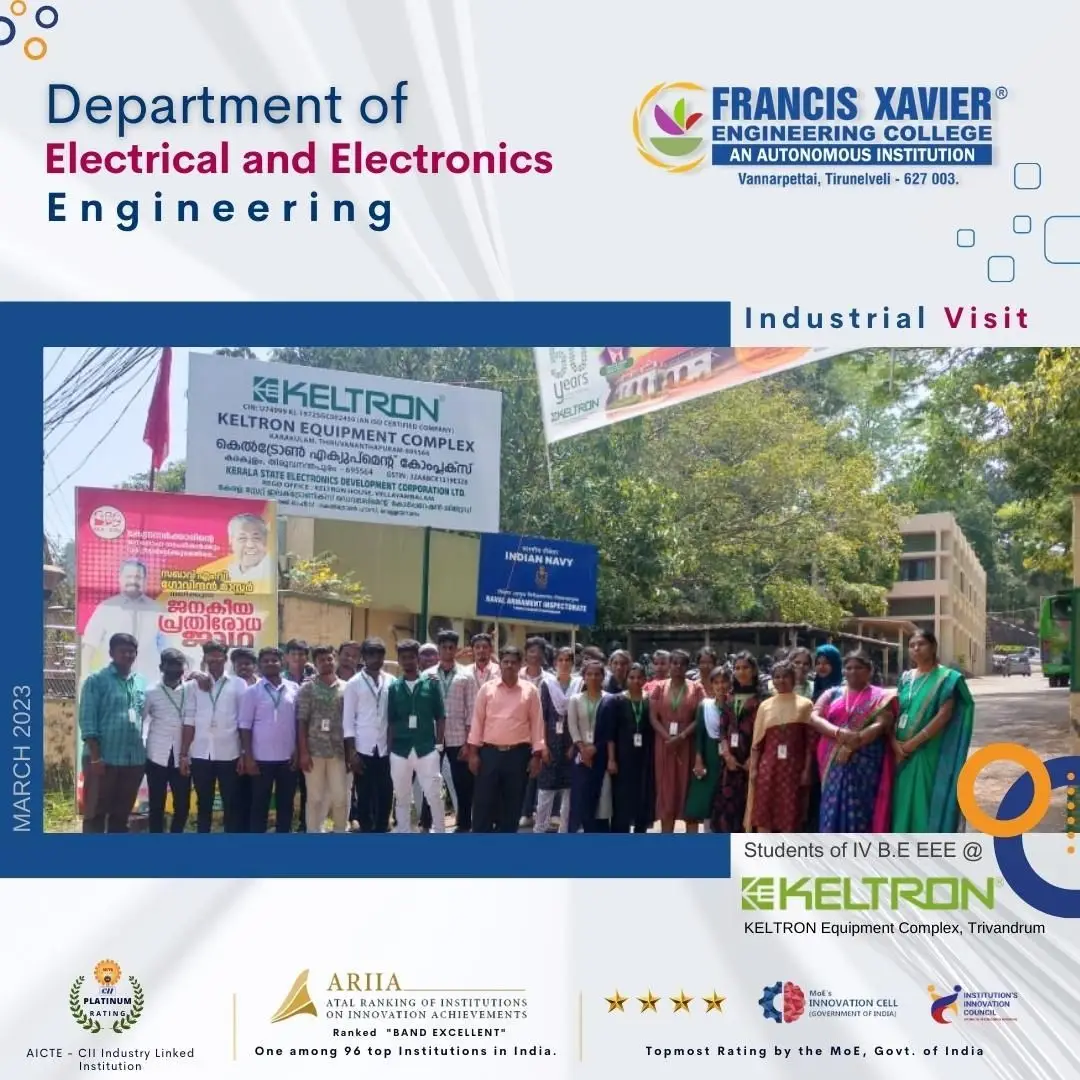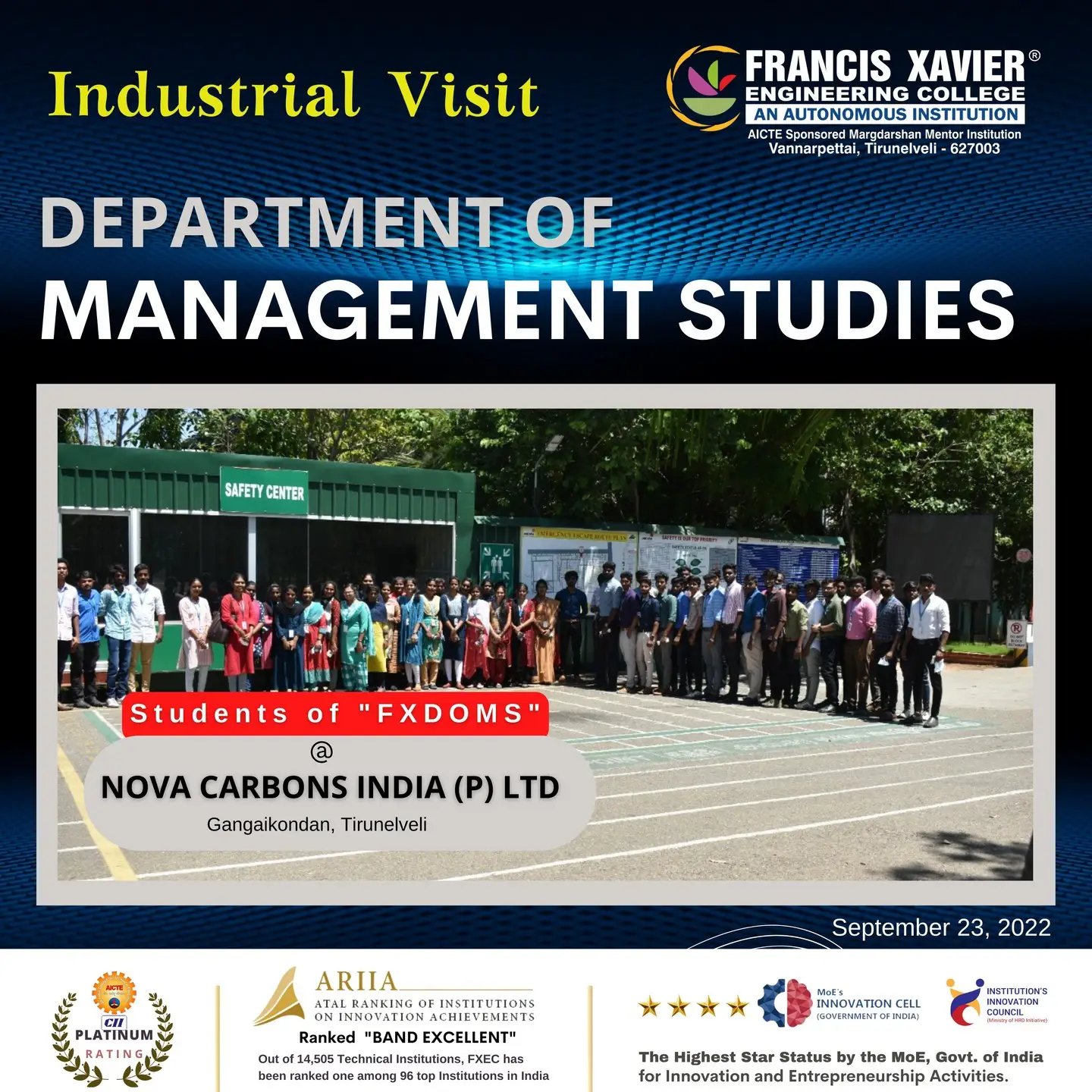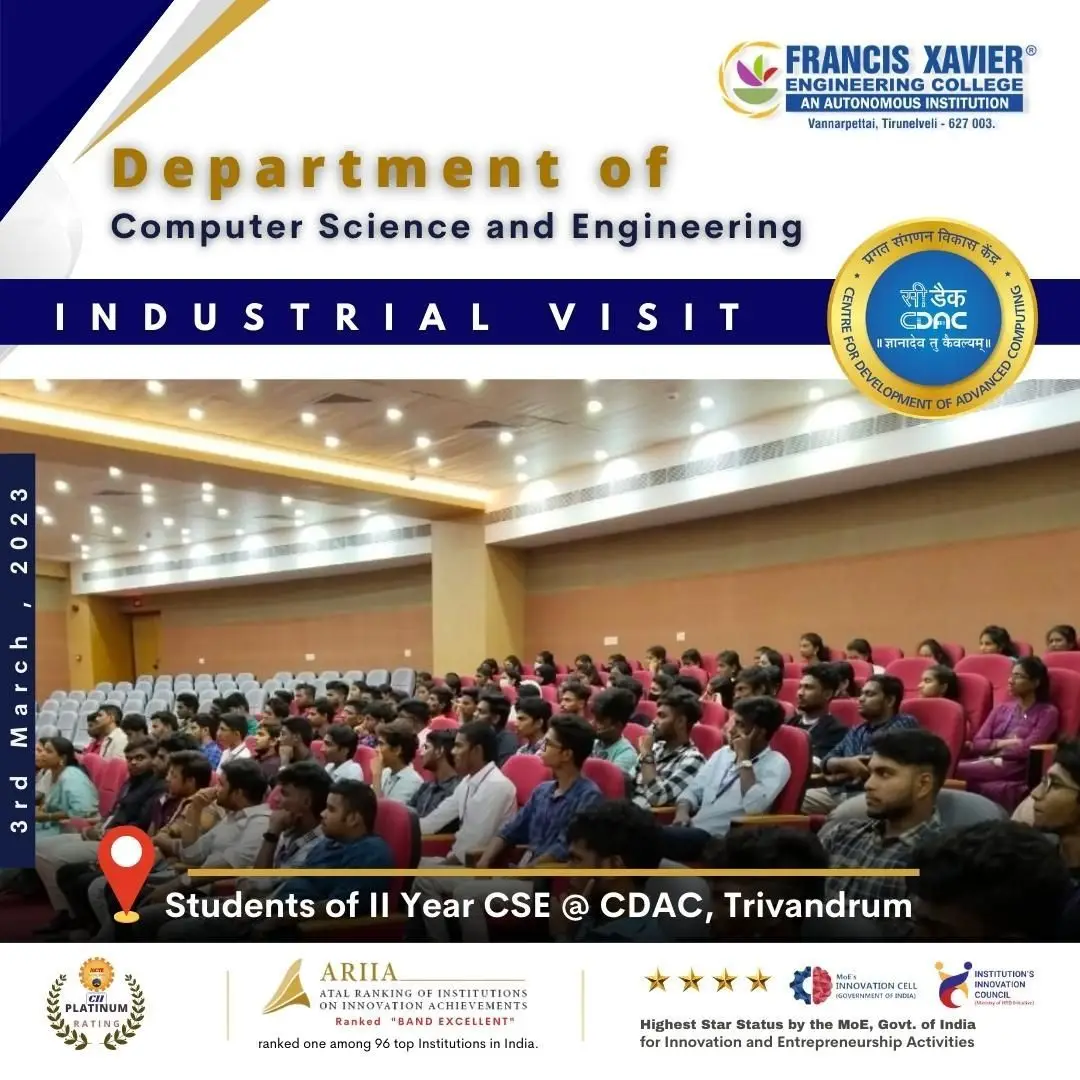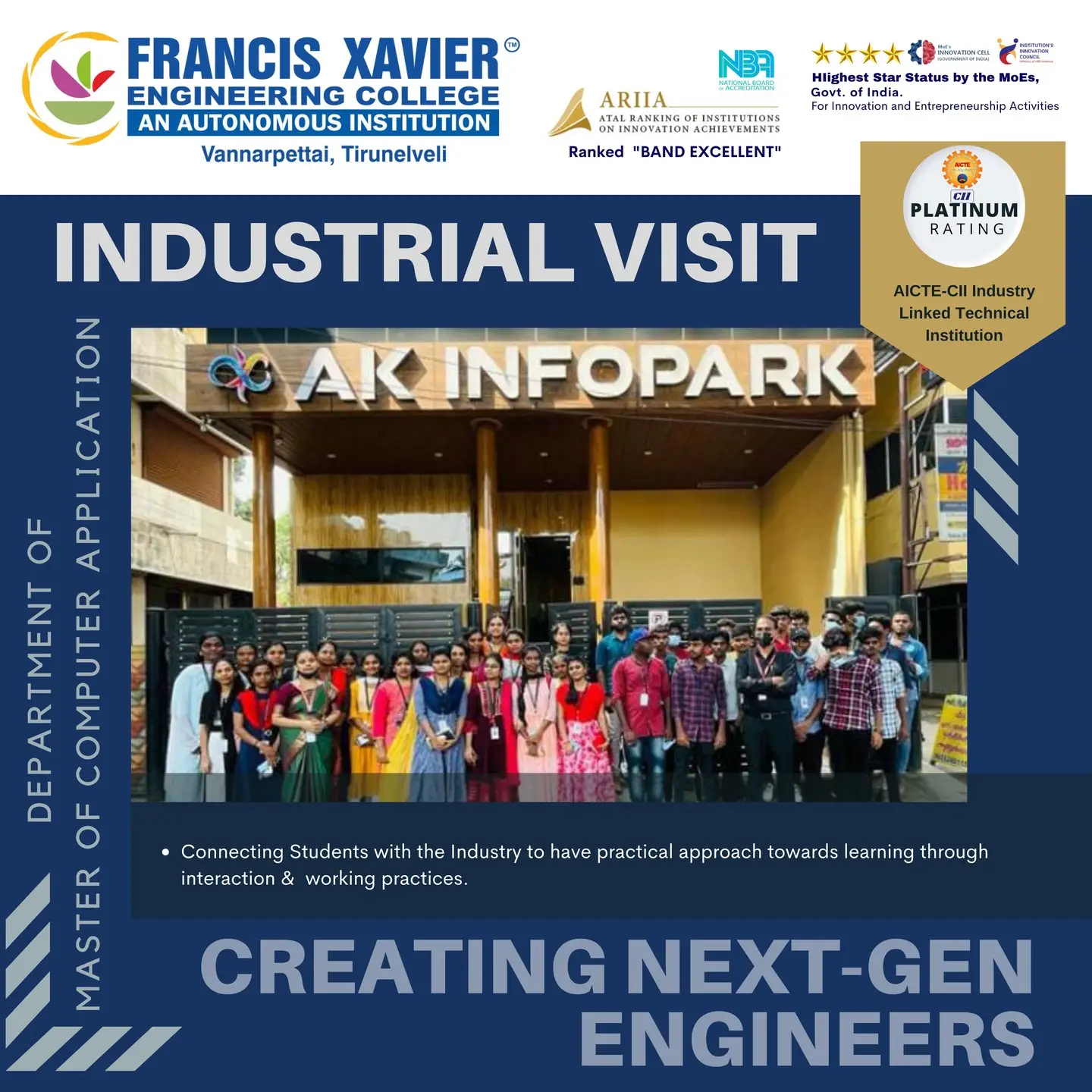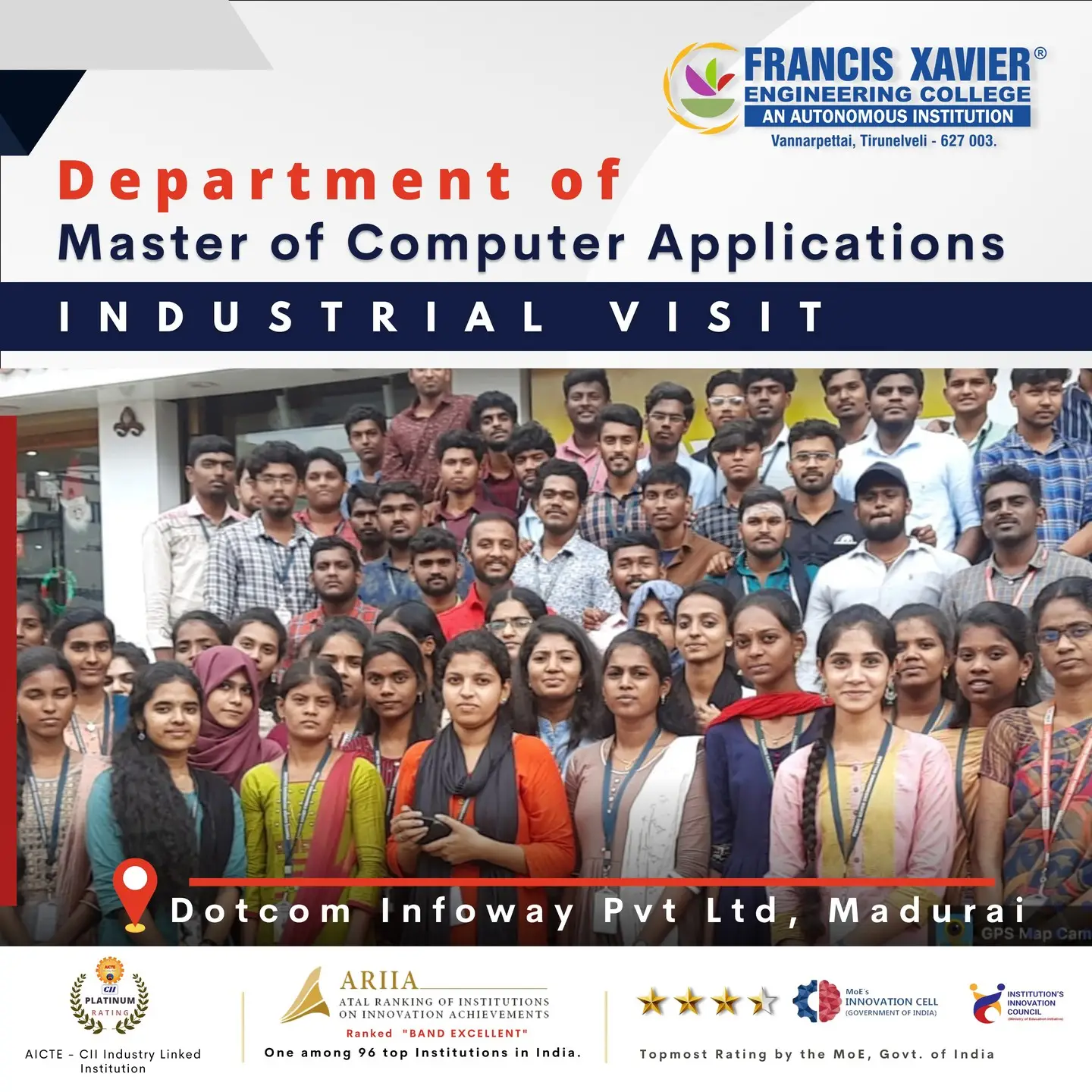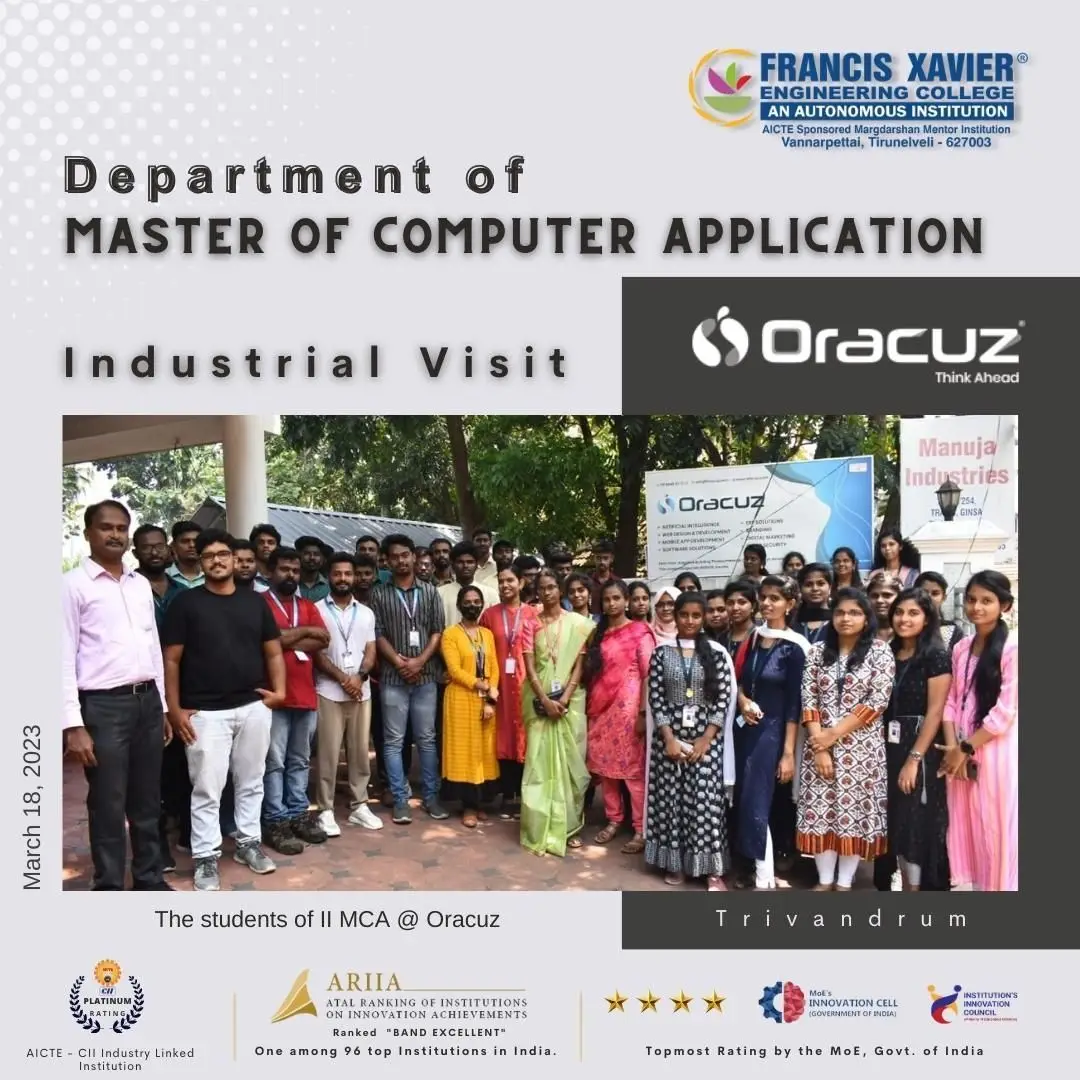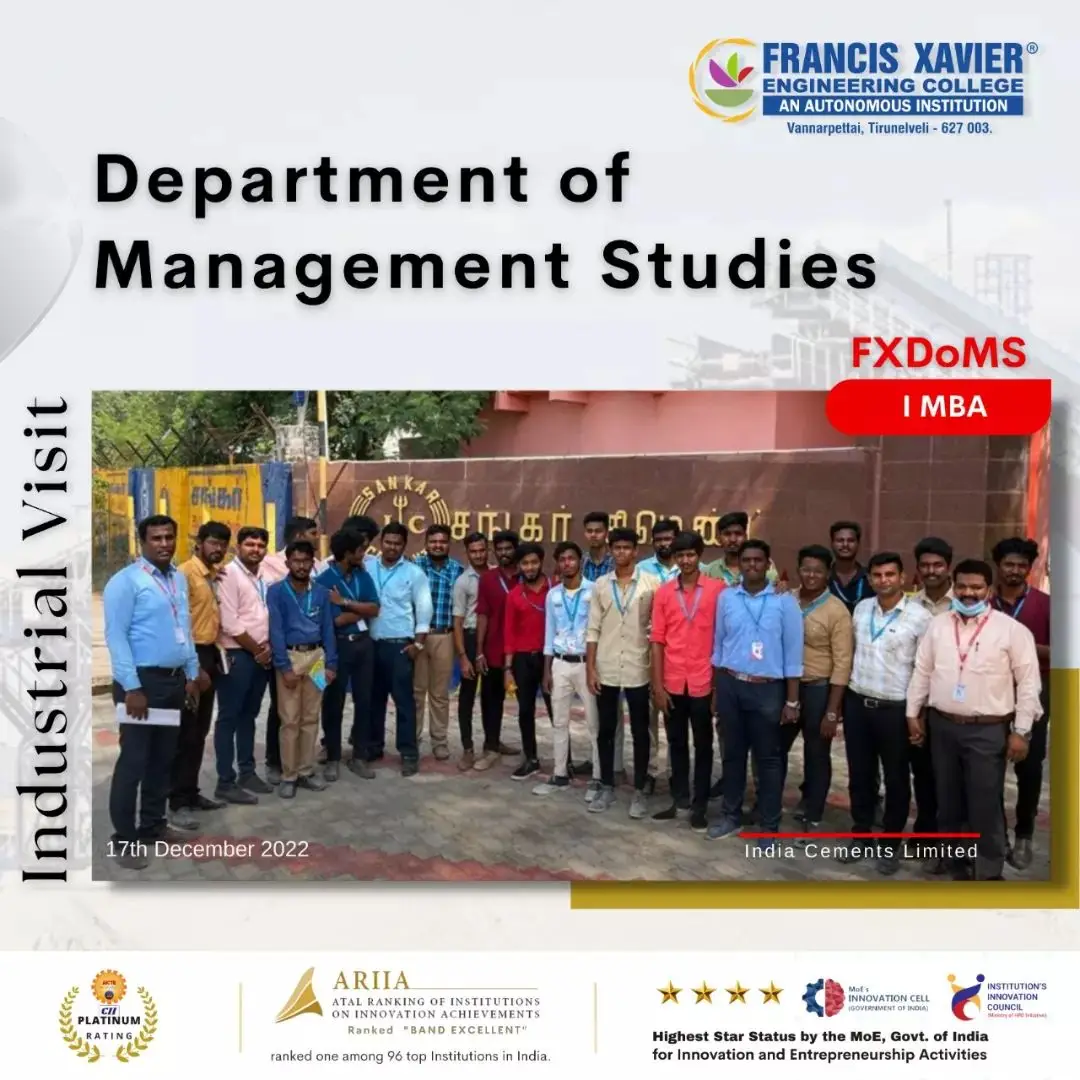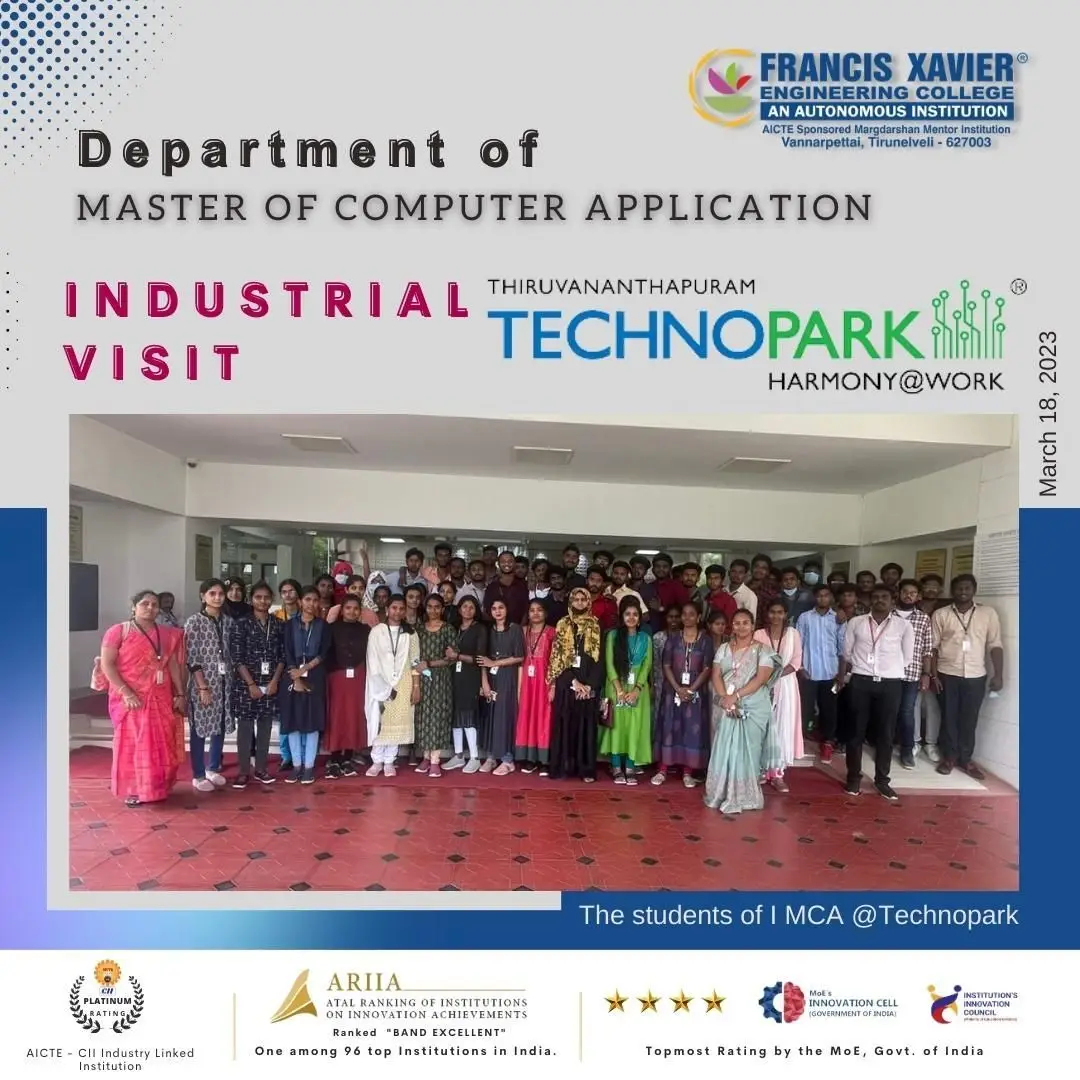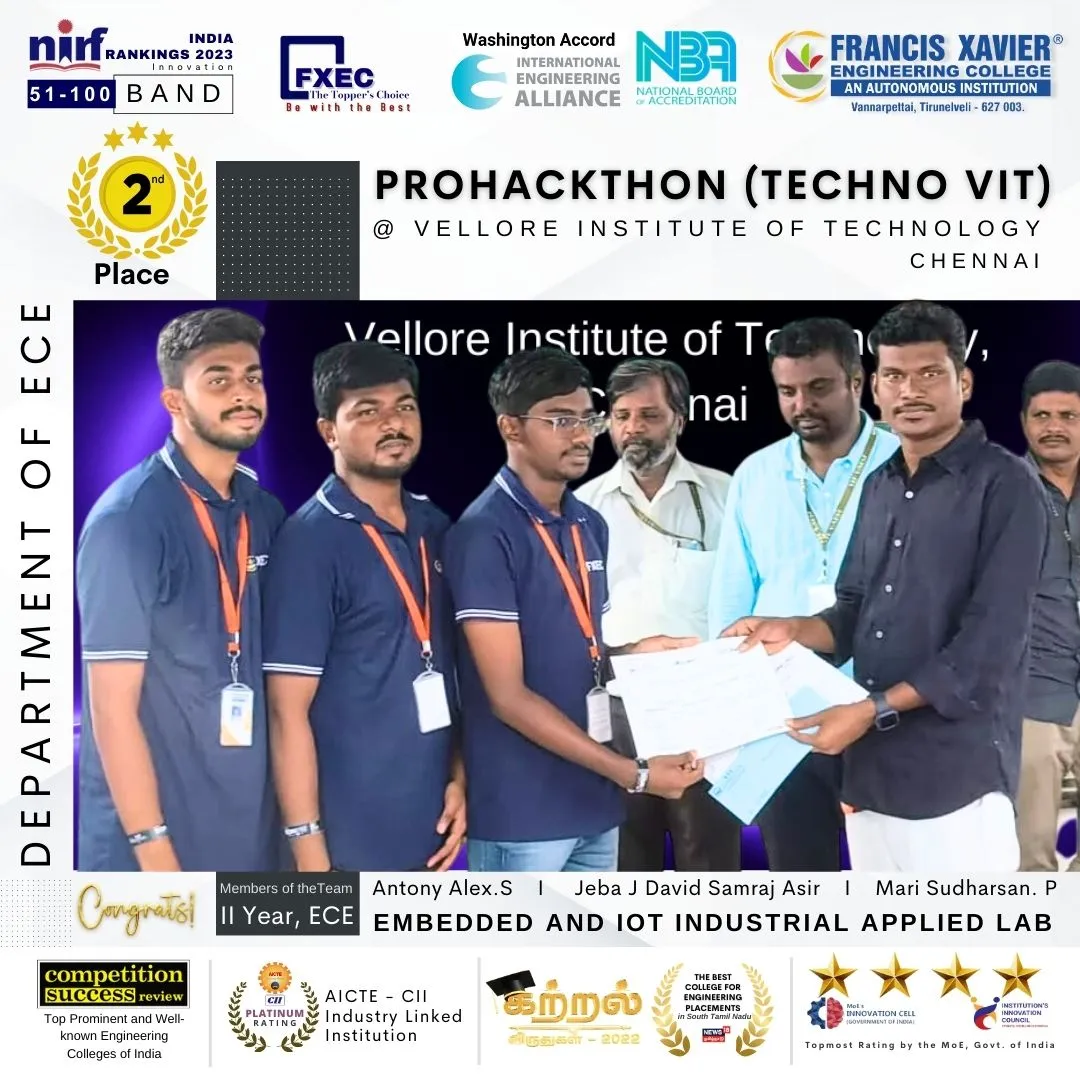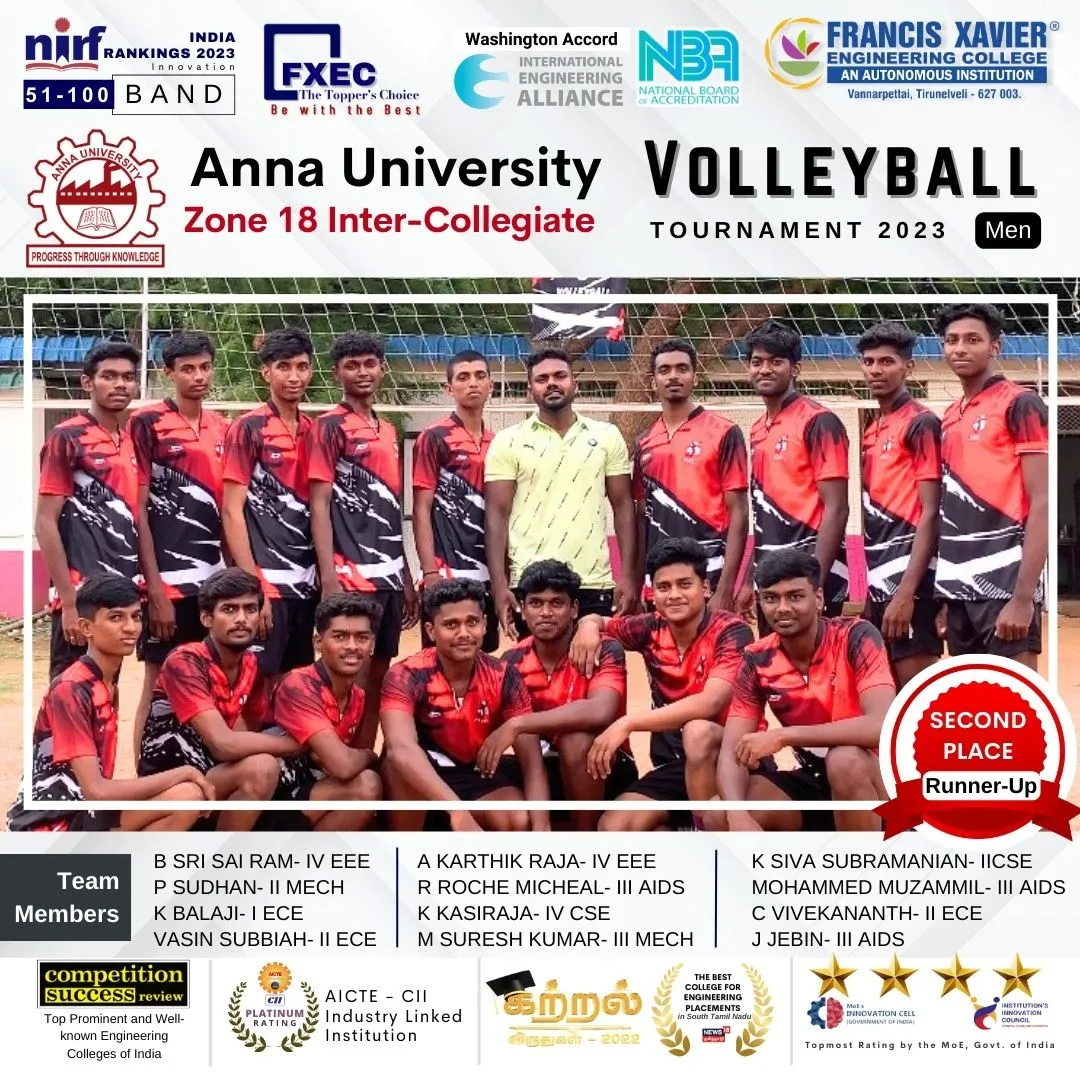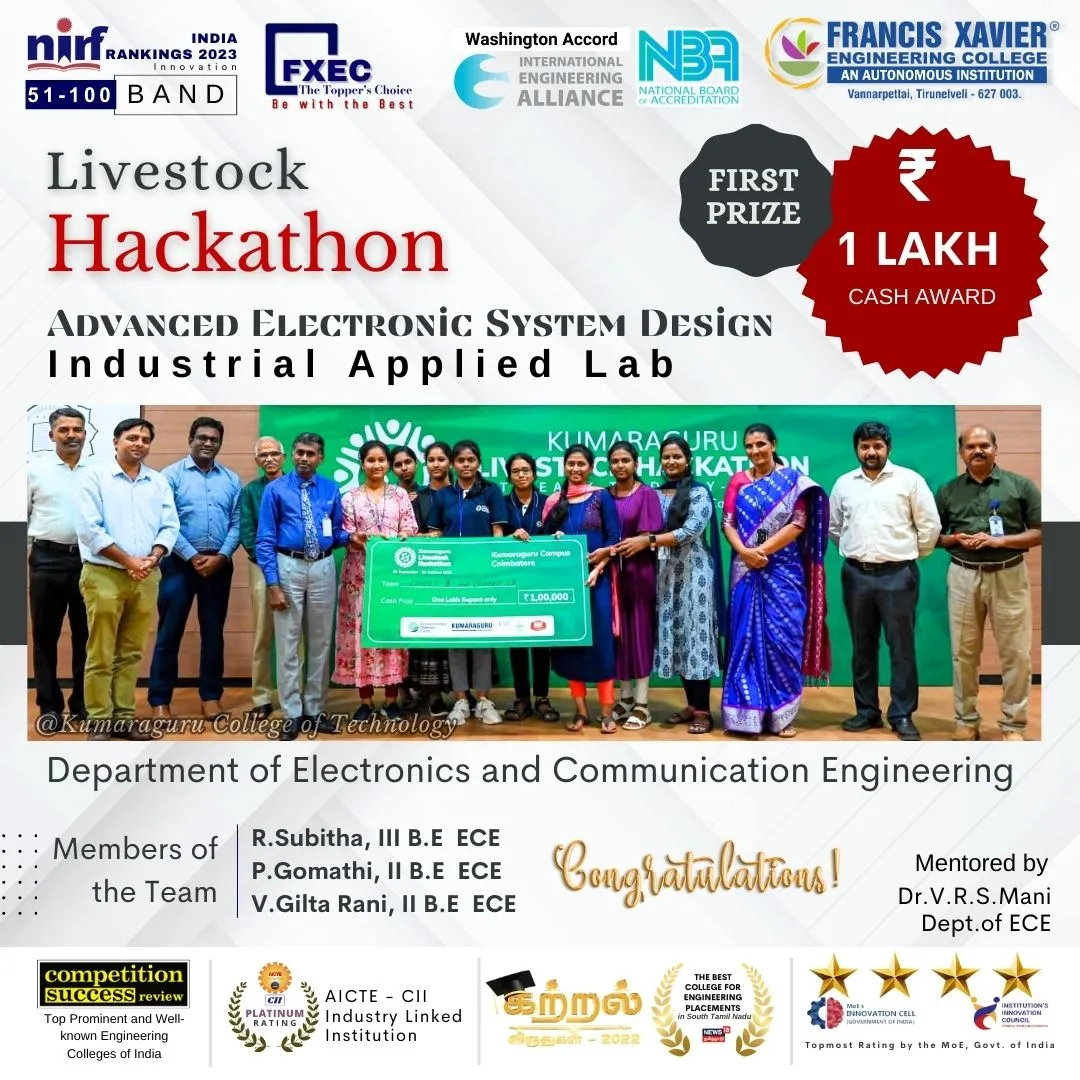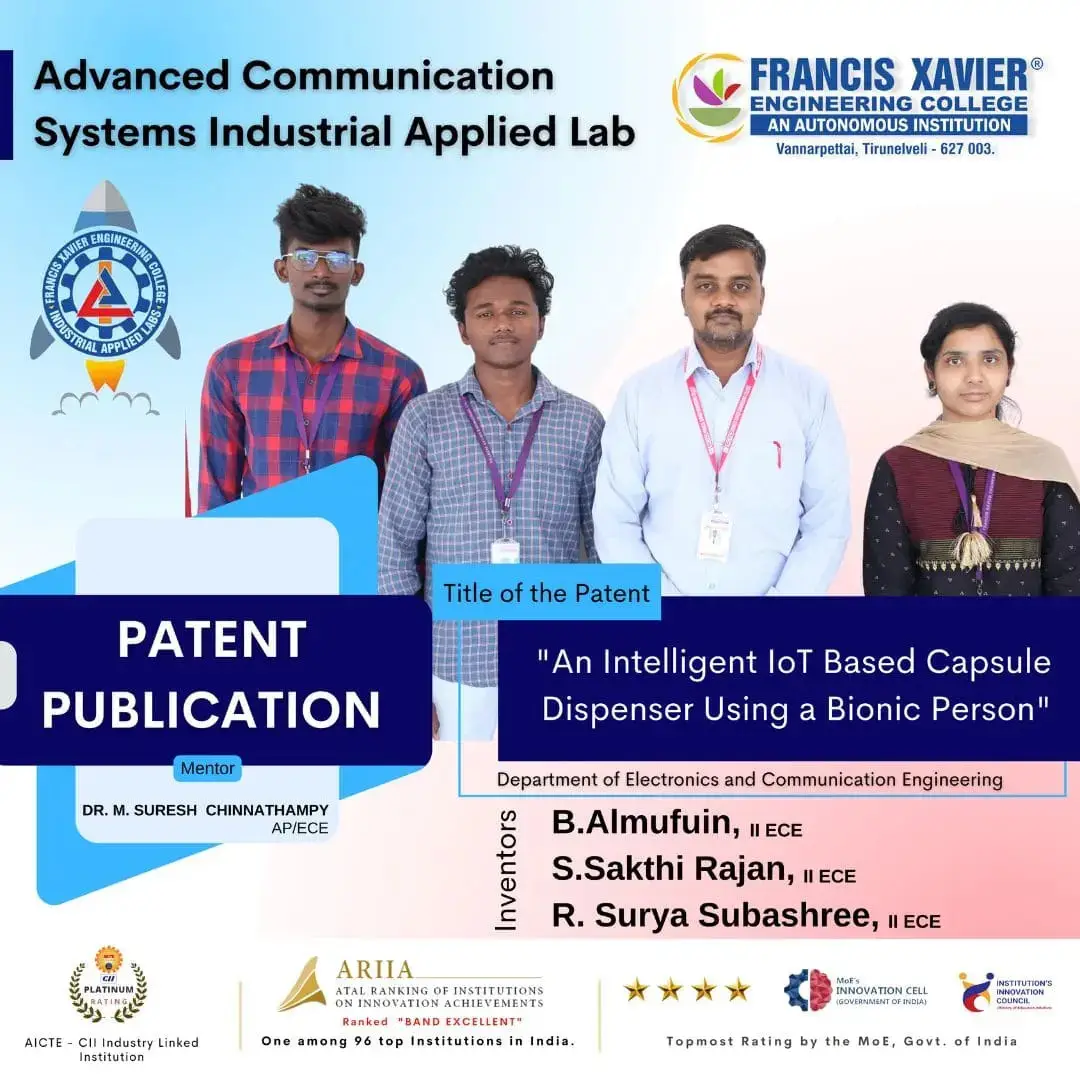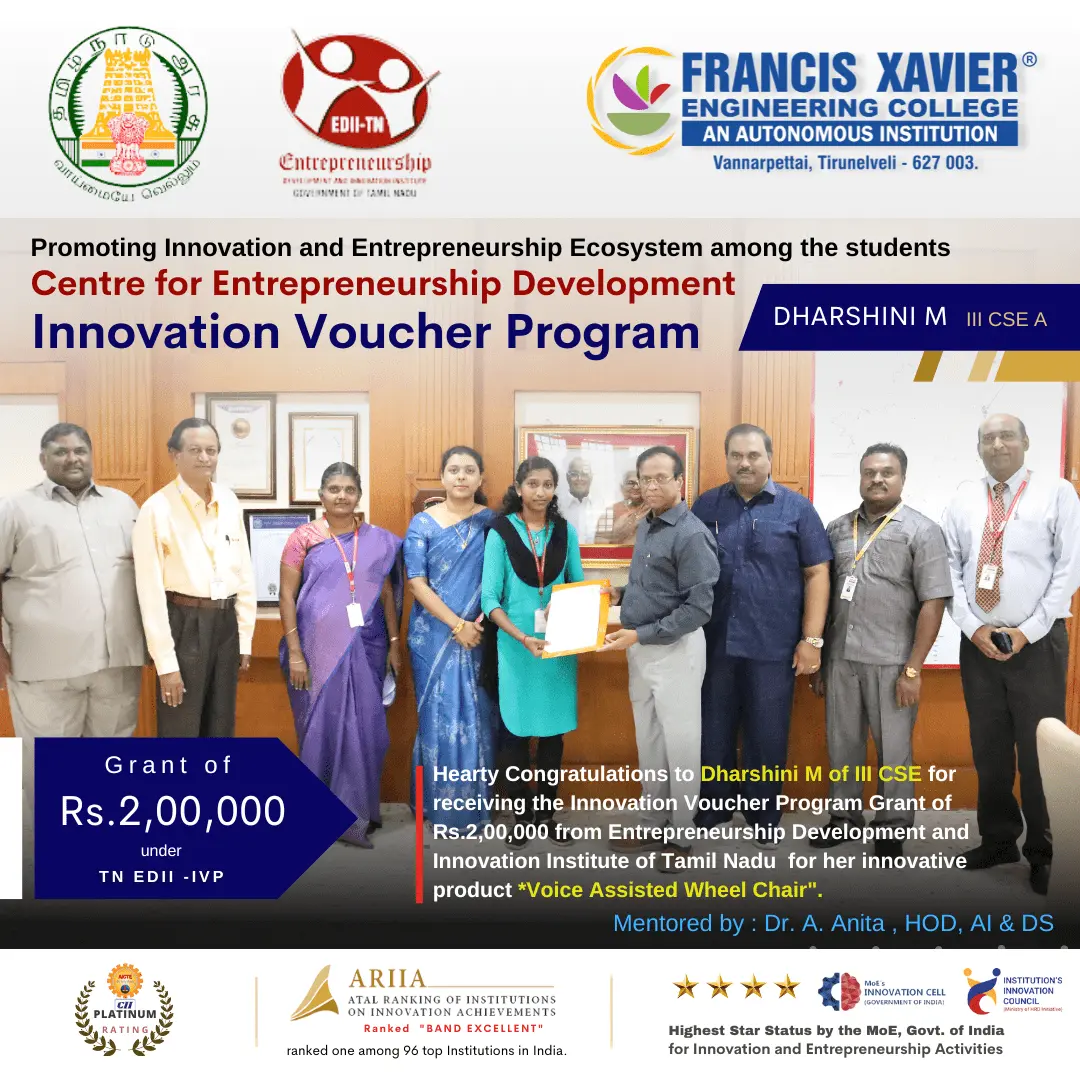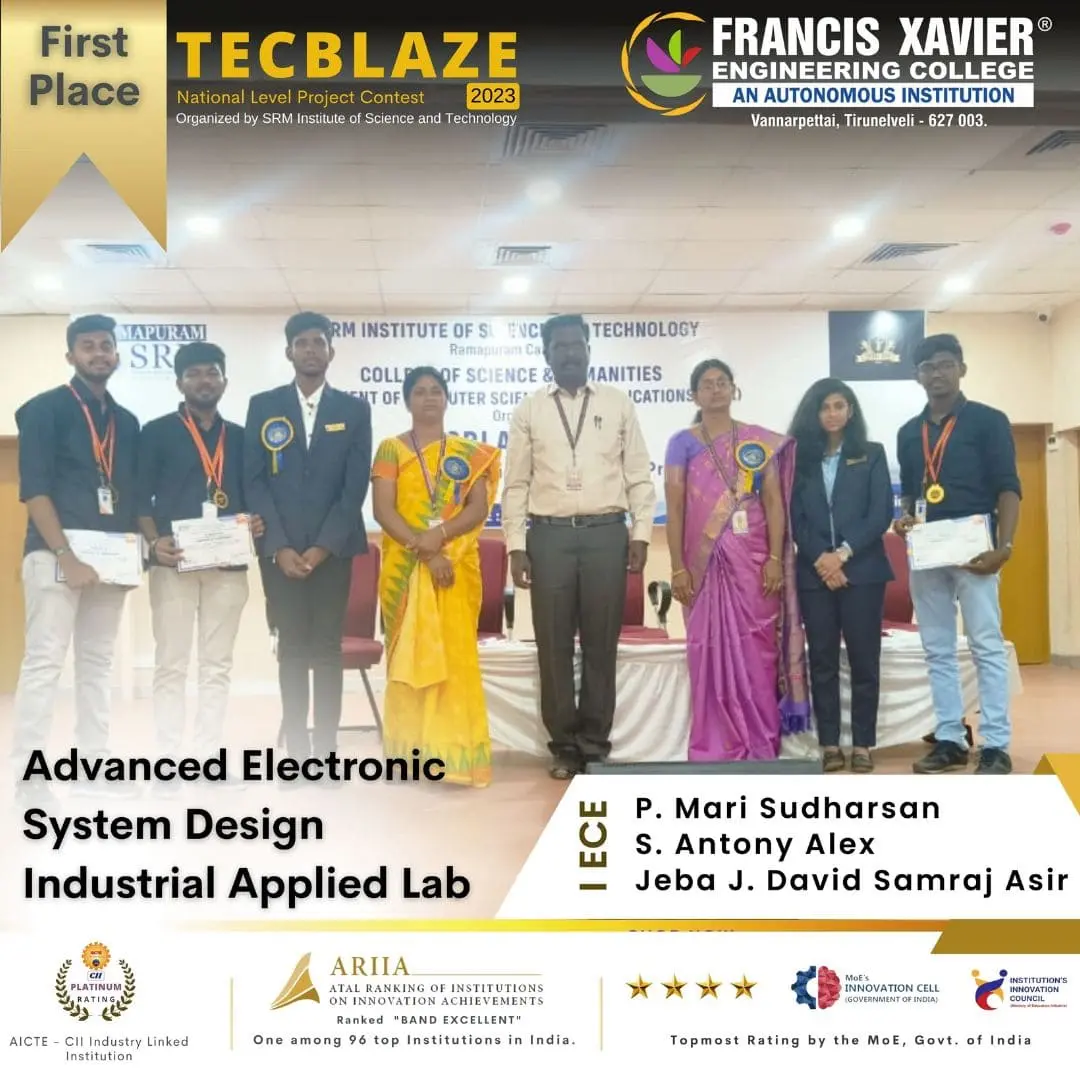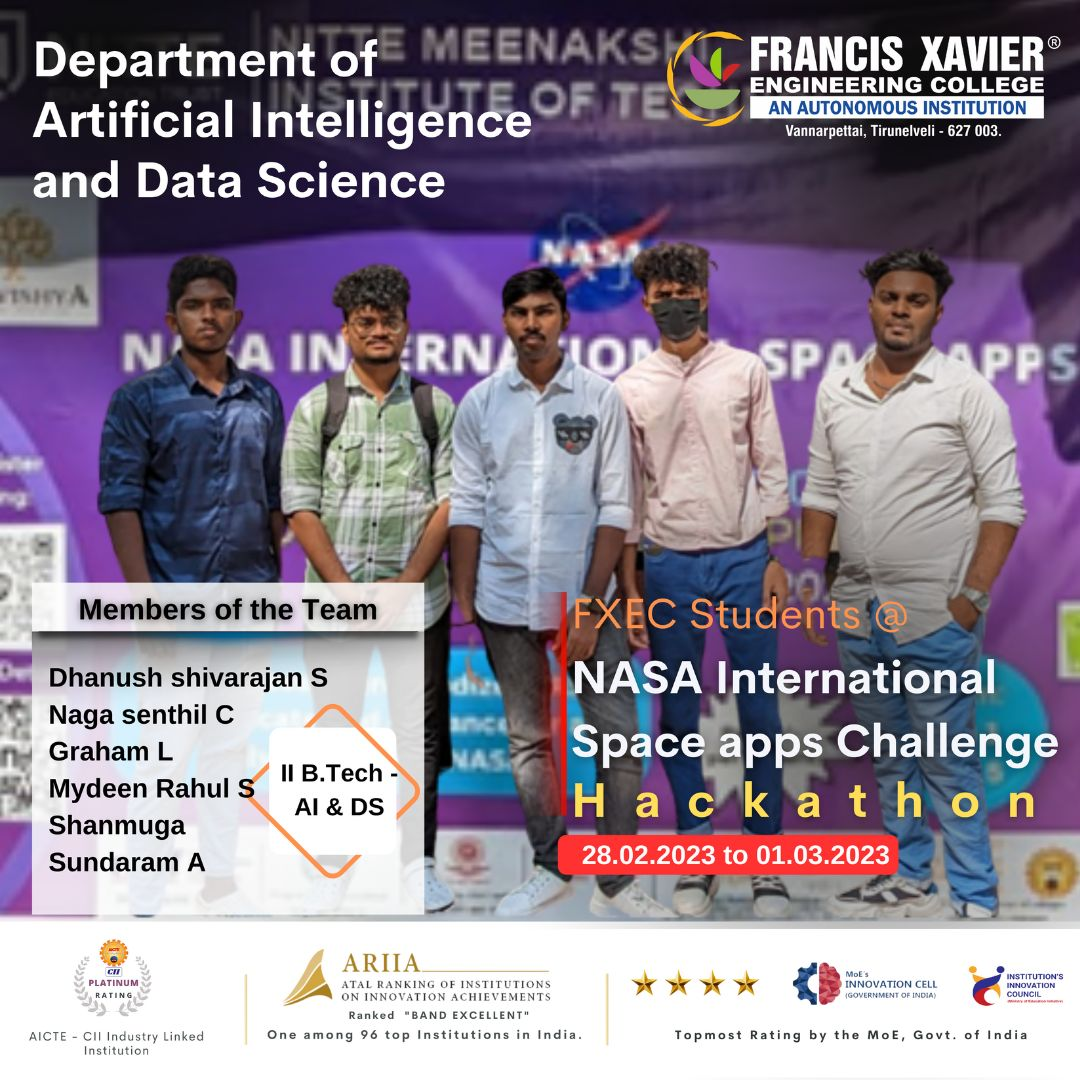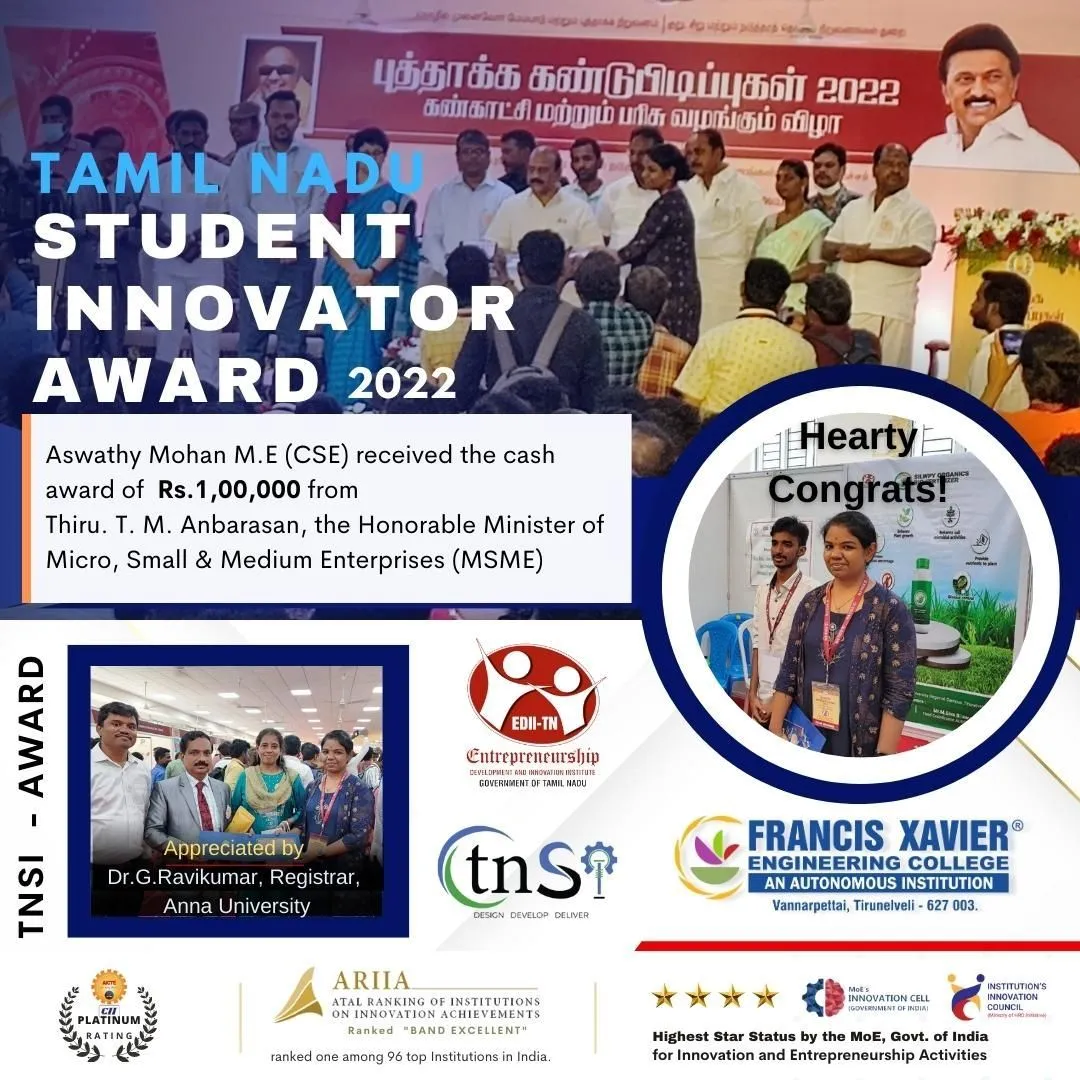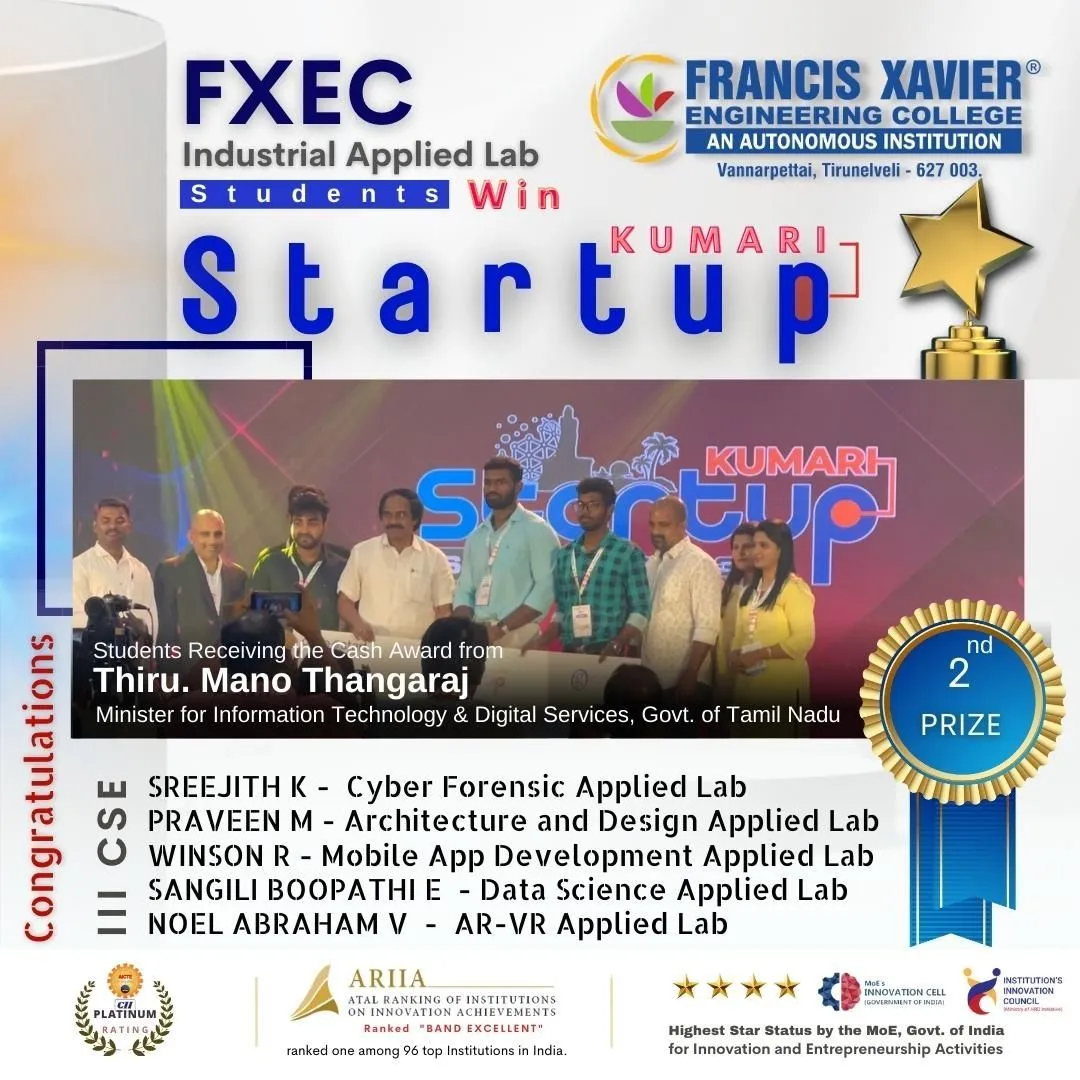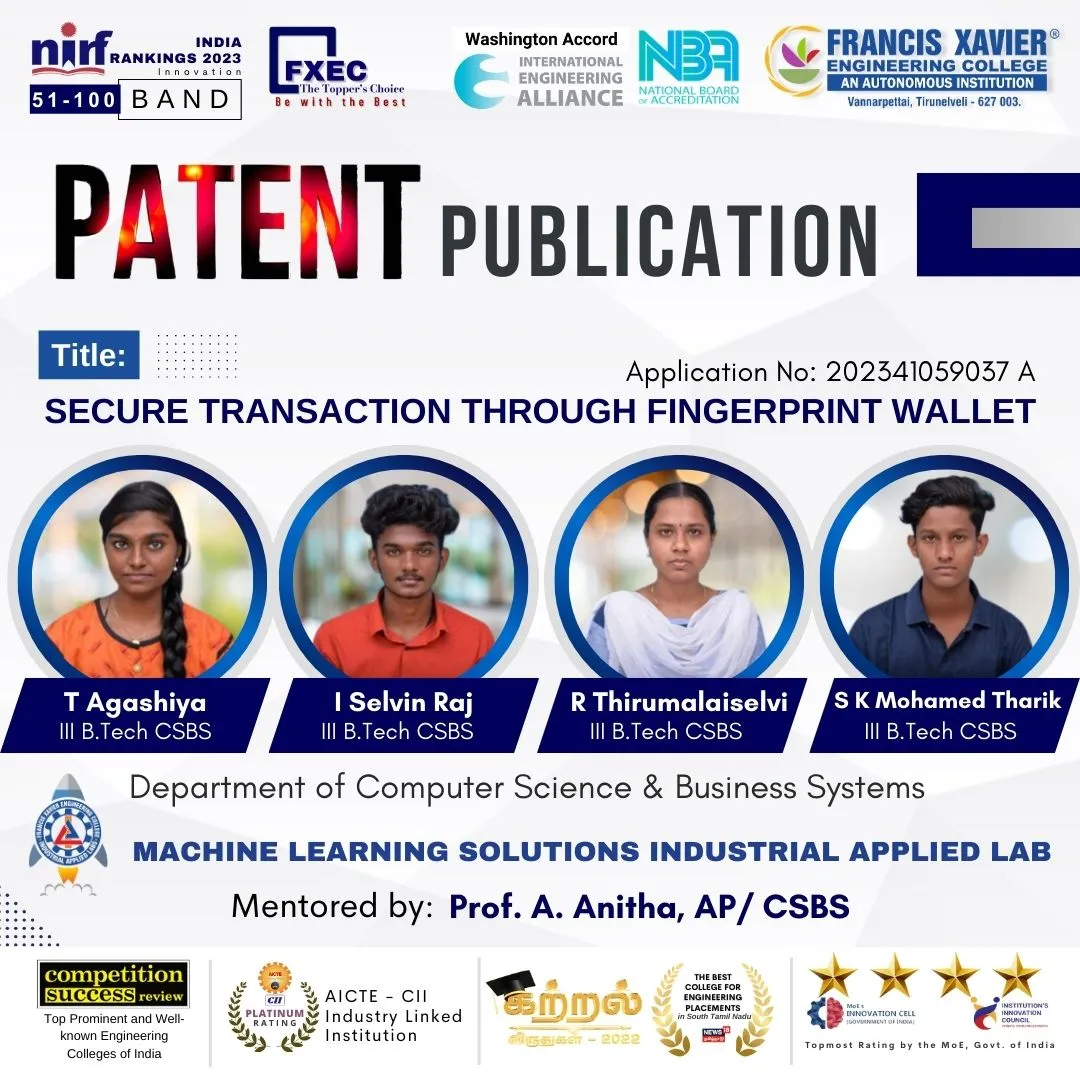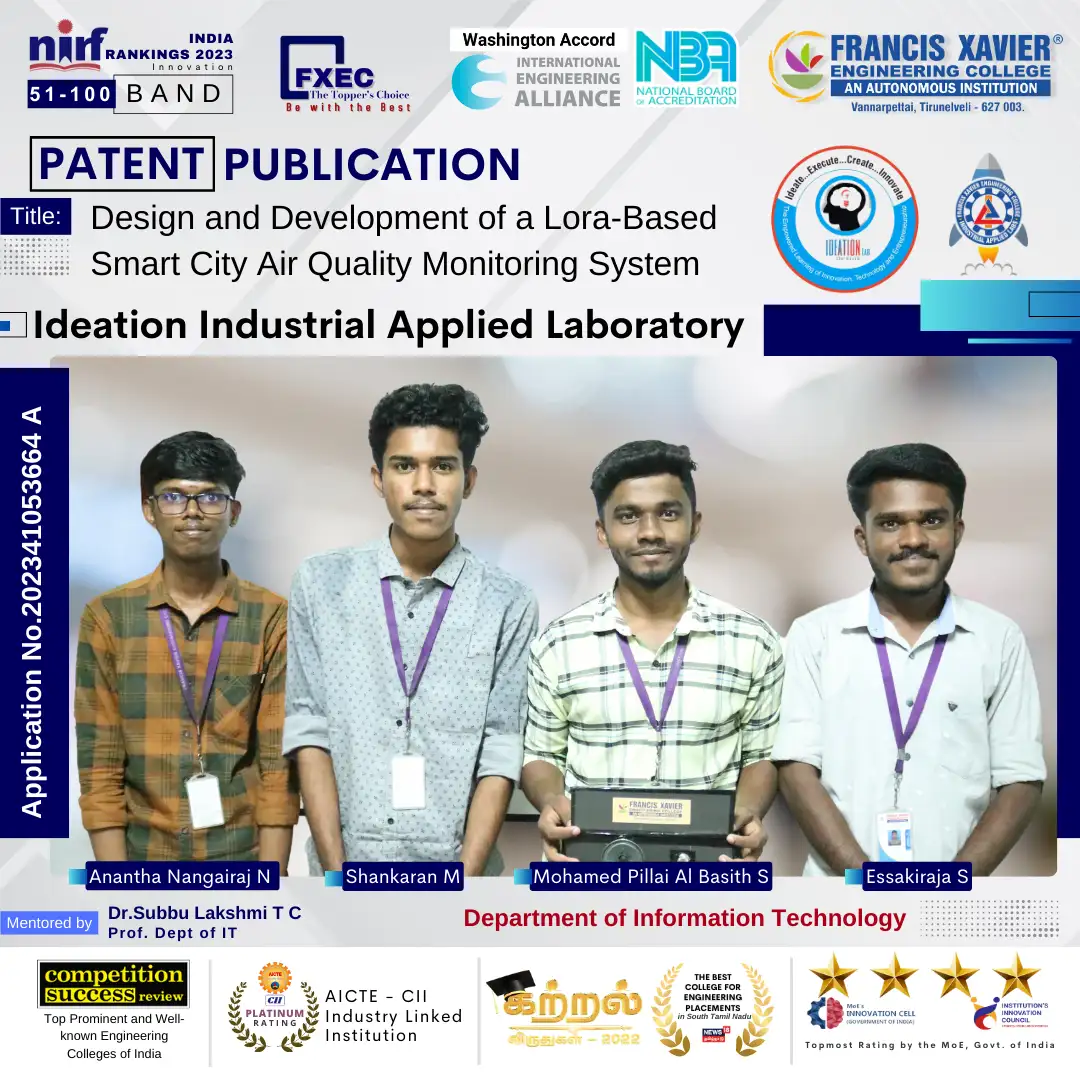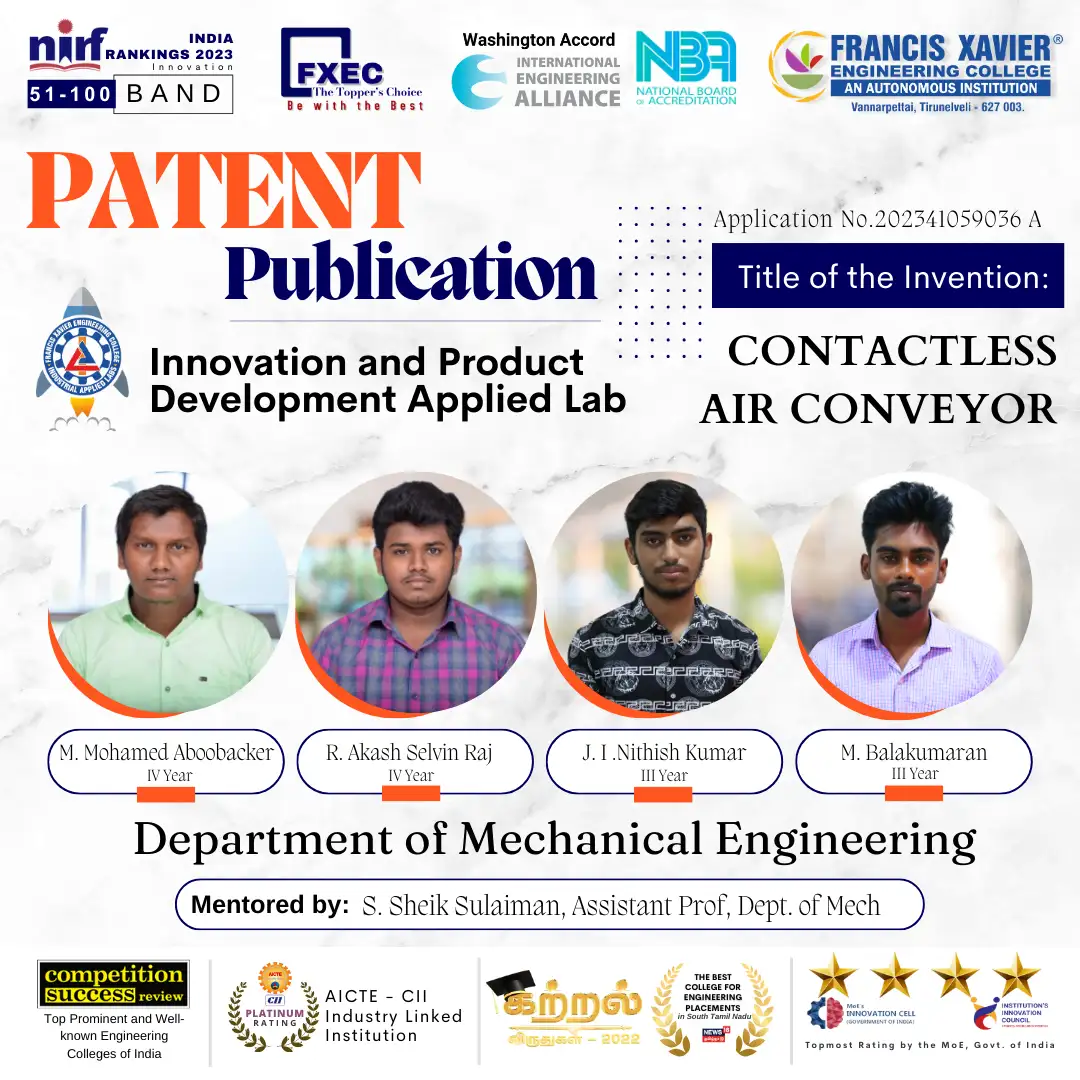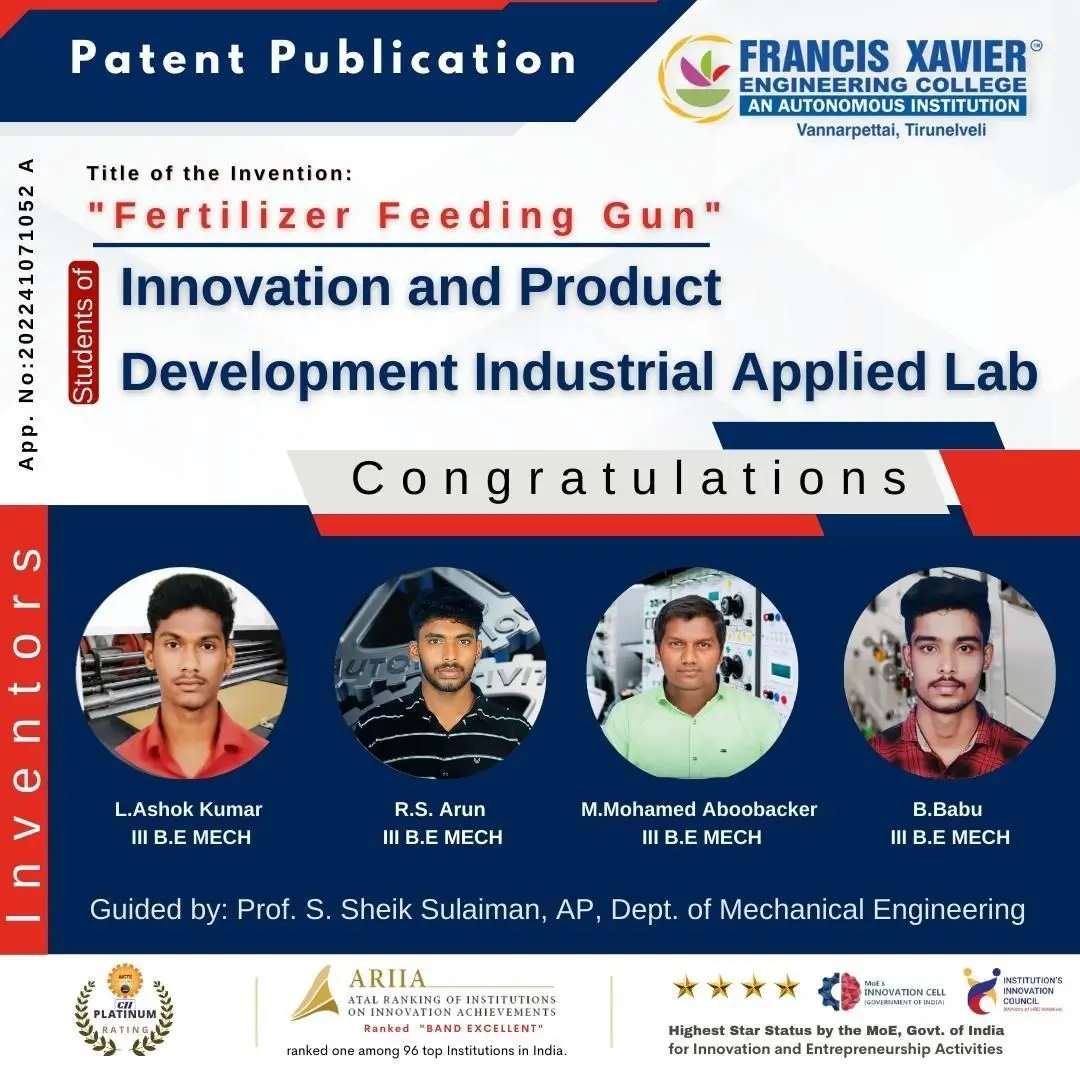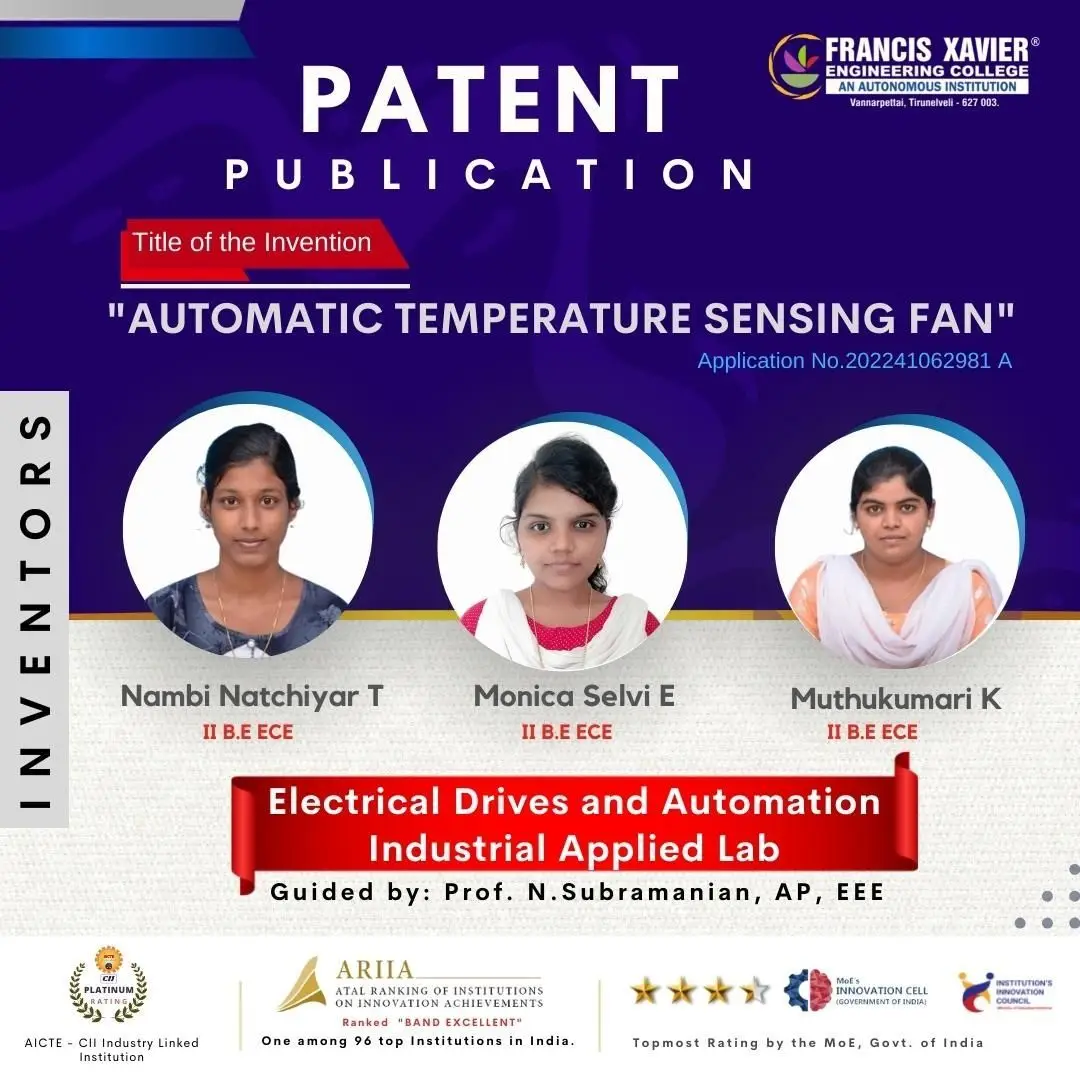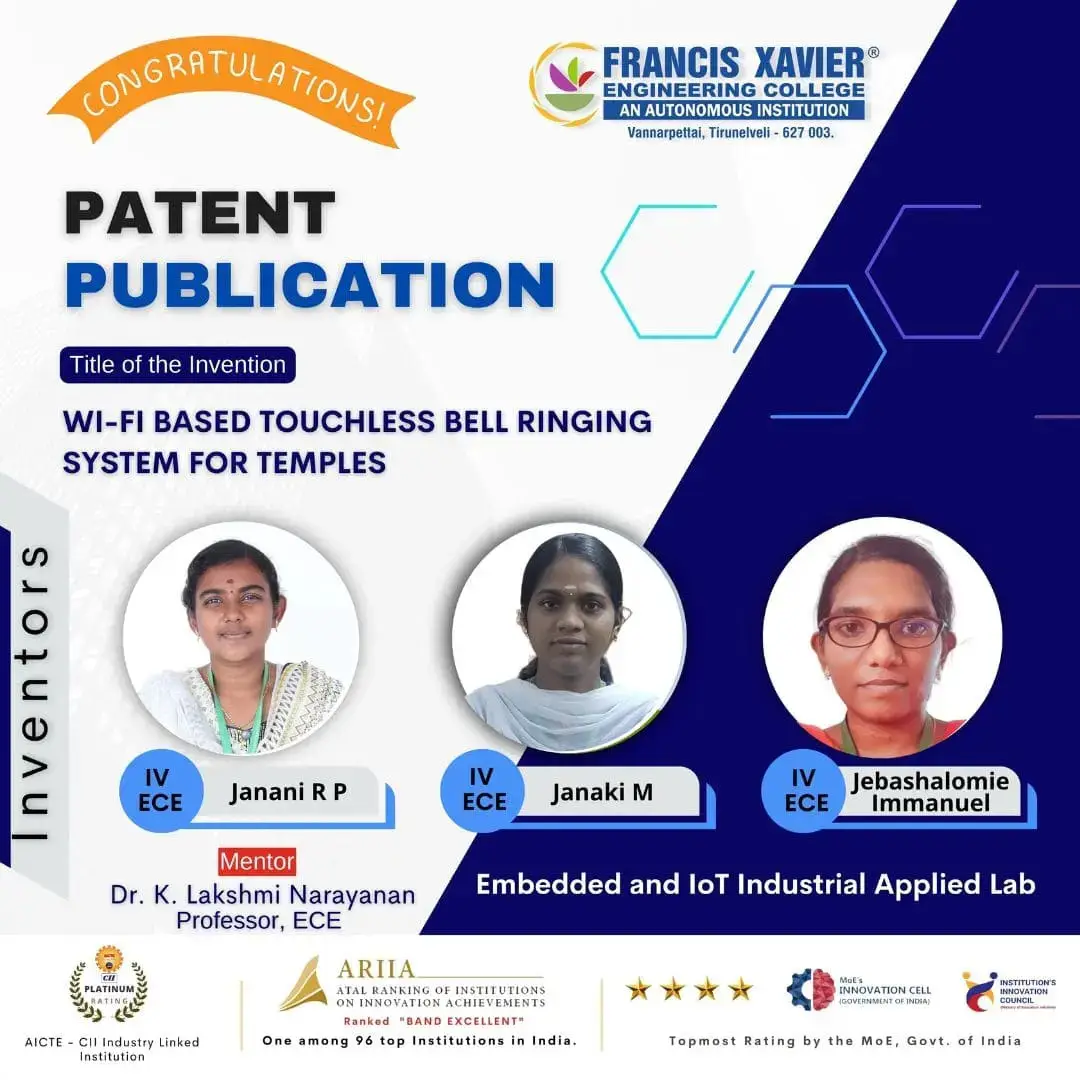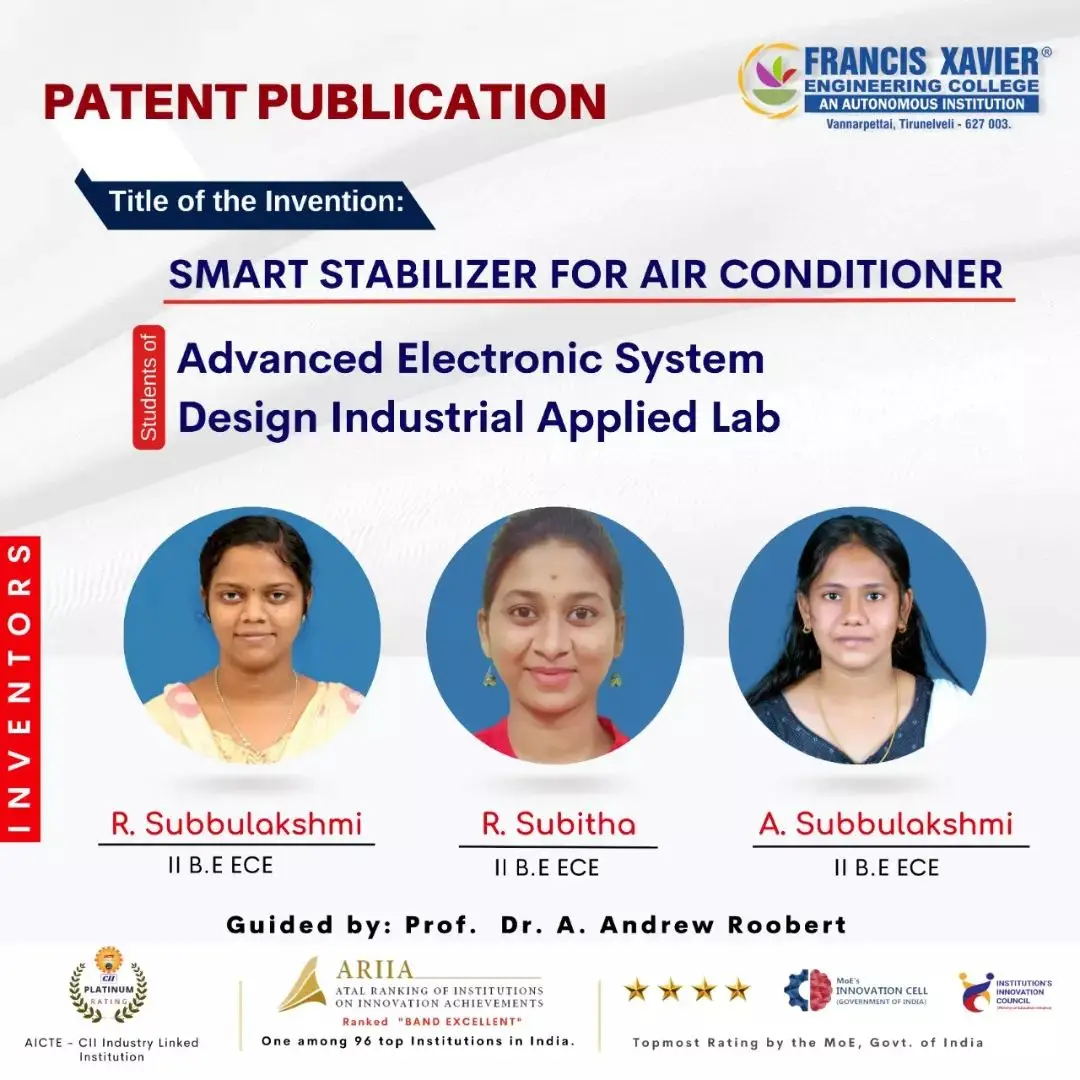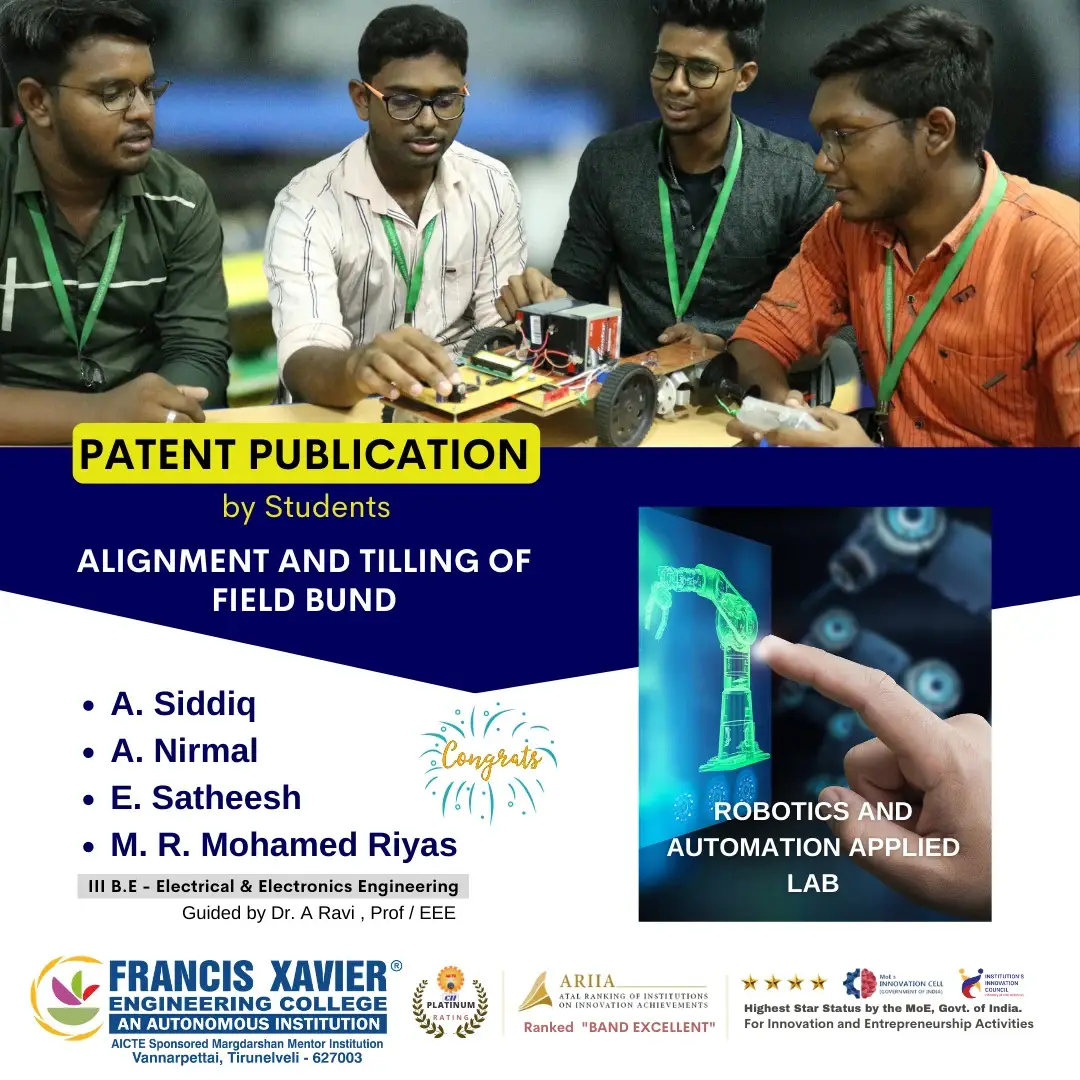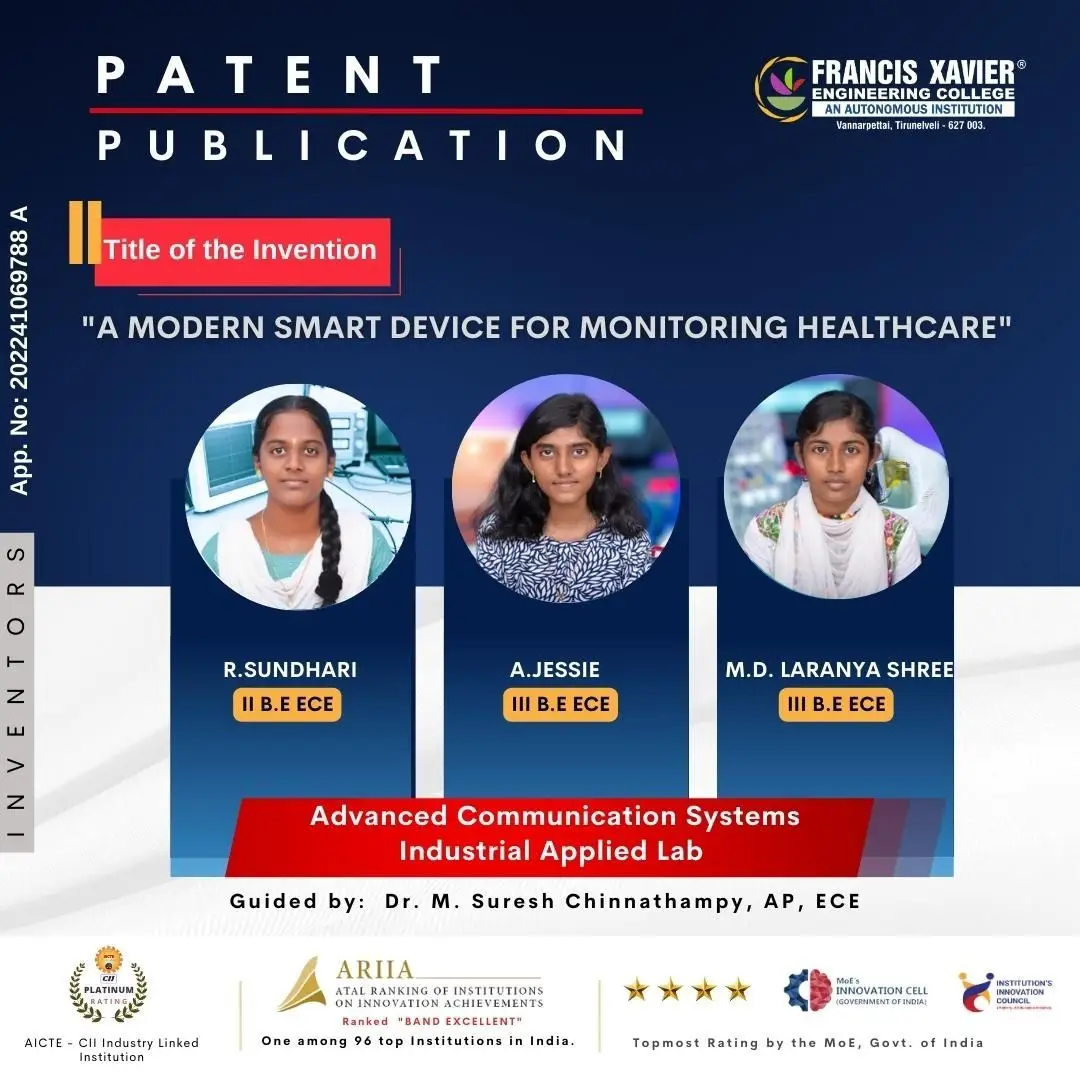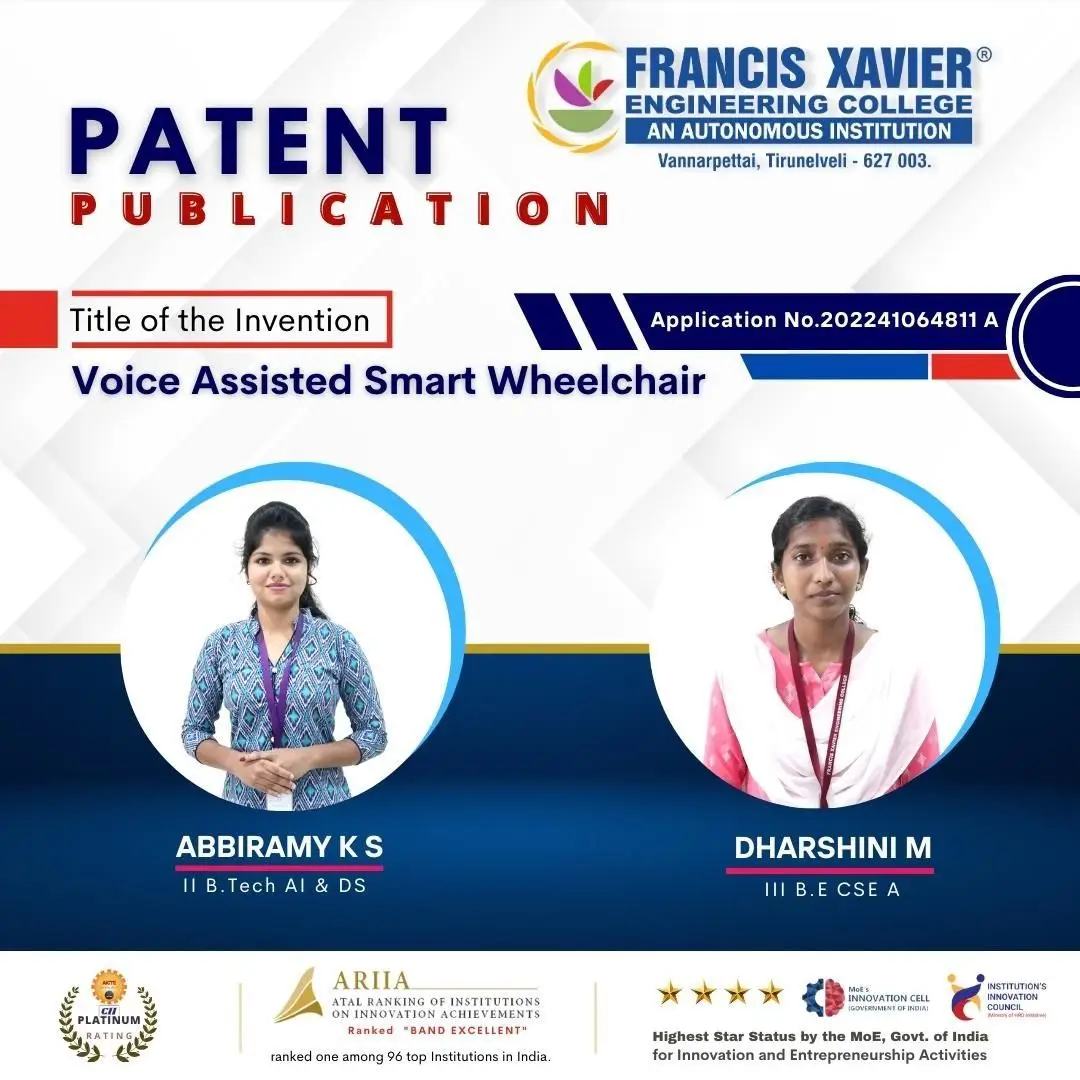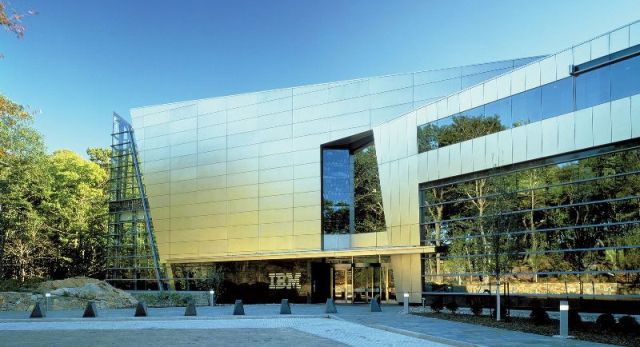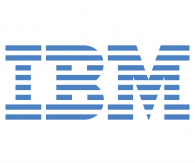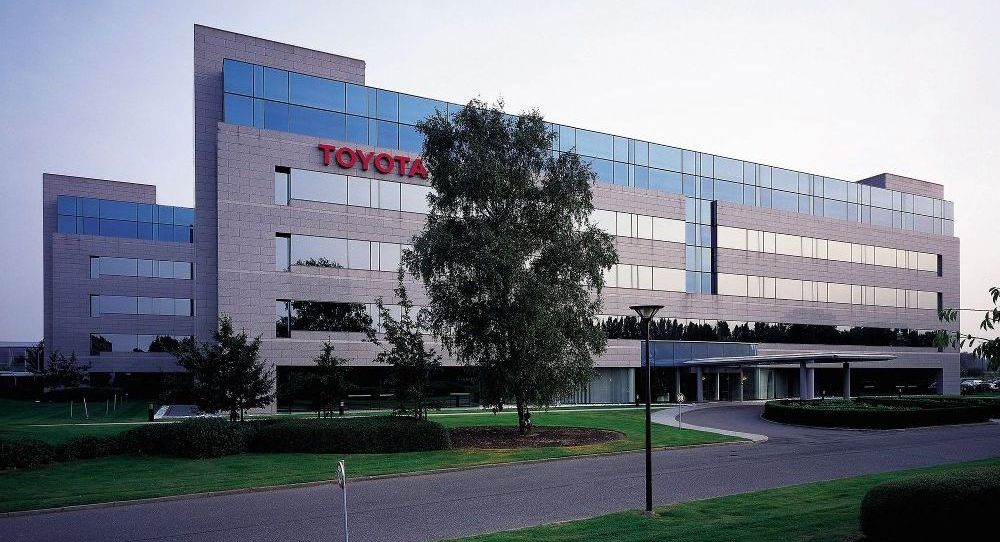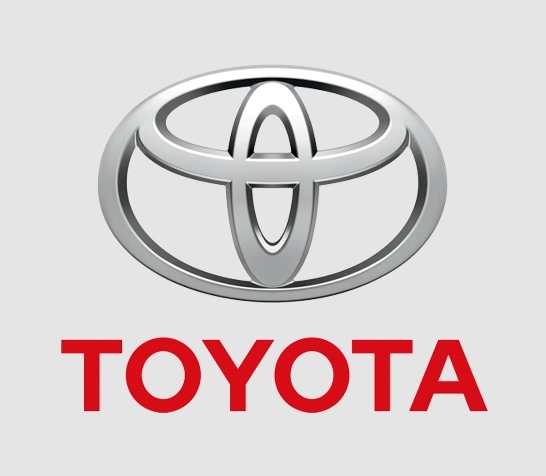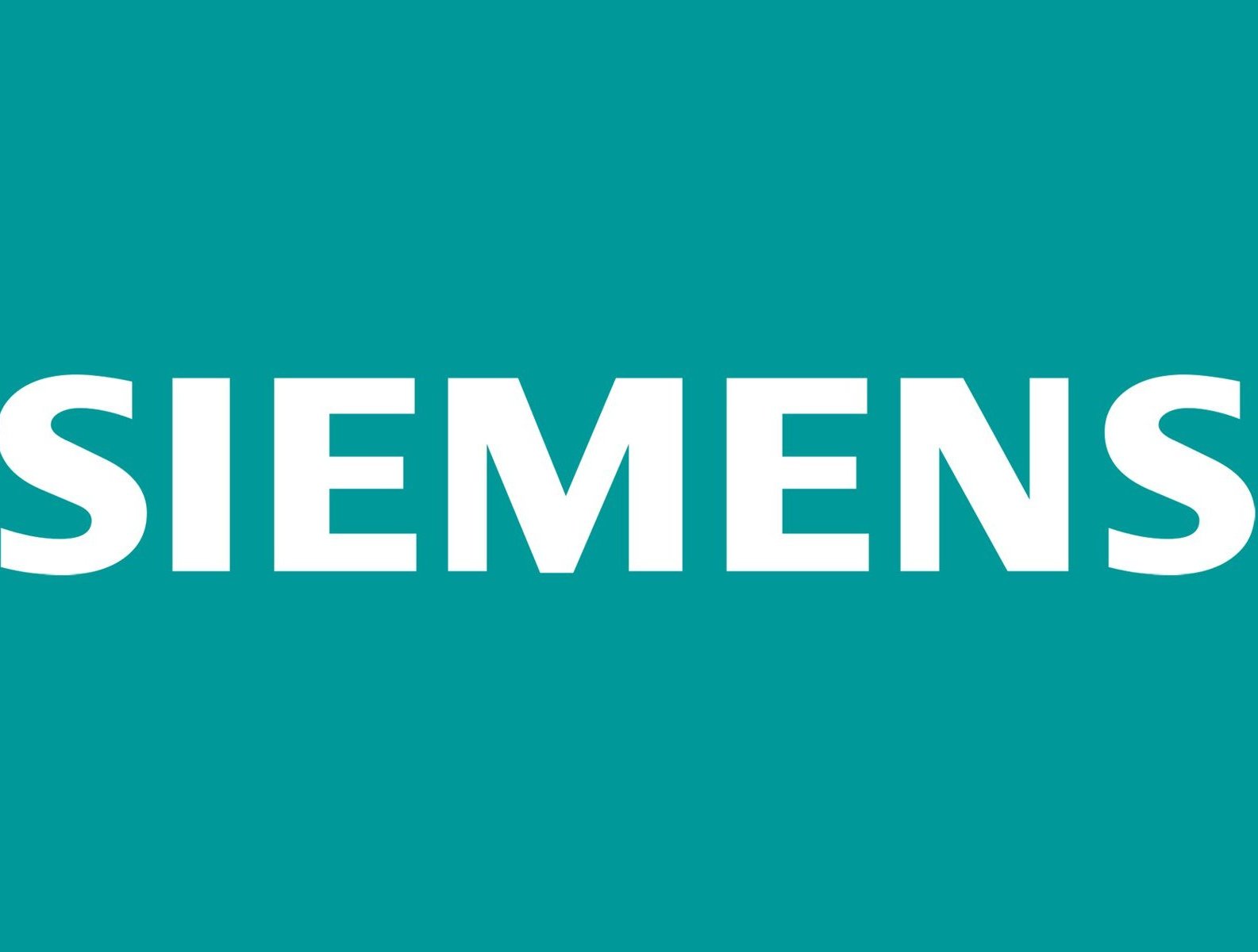Why CSBS from FXEC

Industry Supported Laboratories
Business Analytics Lab
OS Lab
Network Lab

Academic Partnerships

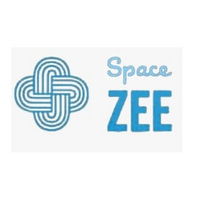
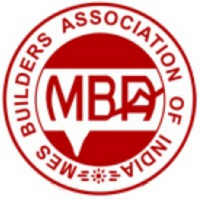

Research
No.of Paper Publication Last 2 Years - 36
No.of Patents published - 02
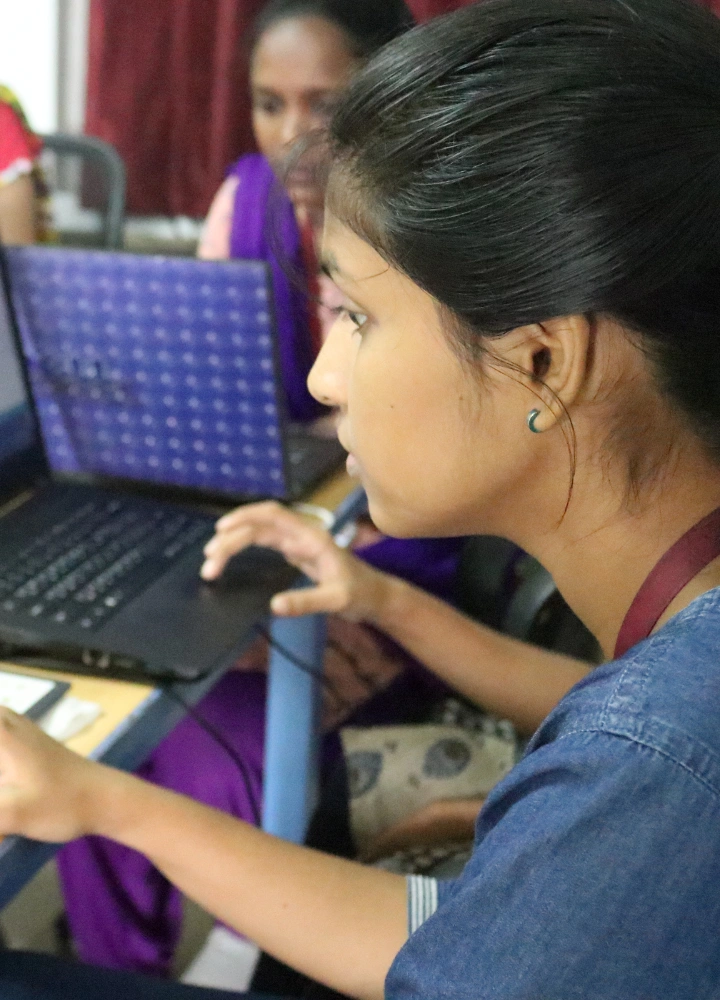
Programme Overview
Computer Science and Business Systems (CSBS) is one of the popular courses among engineering aspirants which mainly focuses on computation, analysis of algorithms, programming languages, program design, software engineering, computer hardware, computer networks and problem solving skills. This course was established in the year 2021 in Francis Xavier Engineering College. To address the growing need of Engineering talents with skills in digital technology, TCS, in partnership with leading academicians across India, has designed a 4 years undergraduate programme on Computer Science titled “Computer Science and Business Systems .
This curriculum aims to ensure that the students graduating from the program not only know the core topics of Computer Science but also develop an equal appreciation of humanities, human values, Financial Management, Services Science & Service Operational Management, Marketing Research, and Marketing Management.
Highlights of the Department
- Industry-Relevant Curriculum designed by TCS and approved by AICTE.
- Learning Common Business Principles
- Exploring Business Discipline and Service Orientation
- Understanding Technology Abstraction
- Innovation Ability
- Strong in Ethics and Life Values
- 714+ Total Offers
- 315 Internship with Salary
- 17 Lac Per Annum Highest Package
- 126 Companies Recruited
Vision
To become a center of excellence in Information Technology and to generate young Engineers with enriched knowledge to serve industries with high values and social responsibilities.
Mission
- To provide world class teaching learning environment and to offer computing education programs.
- To inculcate varied skill sets that meets global industry standards and to practice moral values.
- To enrich moral and ethical values to lead and serve the society.
PEO, PO, PSO
B. Tech Computer Science and Business System
Industry Institute Partnership
Our Key Recruiters




















